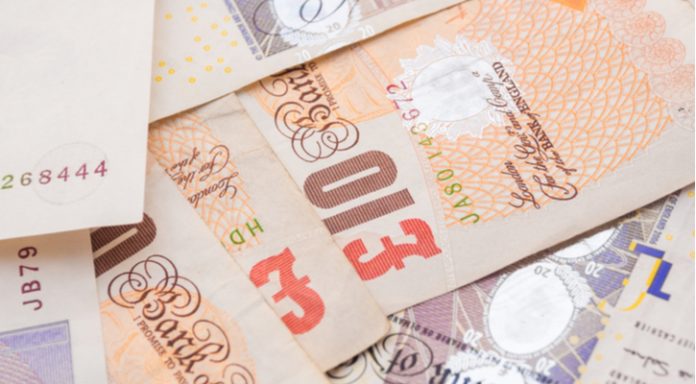Domestic political concerns sent the pound plummeting across the board on Monday. The losses were particularly noticeable versus the stronger US dollar. The pound US dollar exchange rate tumbled over 100 points to a low of US$1.2957.
UK Prime Minister Theresa May was once again hanging onto her political life. Pressure has been mounting on the Prime Minister since she confirmed that she was willing to consider extending the Brexit transition period. A potential challenge to her leadership is being anticipated in the coming weeks, as her hold over her party shows signs of immense strain.
| What do these figures mean? |
|---|
|
When measuring the value of a pair of currencies, one set equals 1 unit and the other shows the current equivalent. As the market moves, the amount will vary from minute to minute. For example, it could be written: 1 GBP = 1.28934 USD Here, £1 is equivalent to approximately $1.29. This specifically measures the pound’s worth against the dollar. If the US dollar amount increases in this pairing, it’s positive for the pound. Or, if you were looking at it the other way around: 1 USD = 0.77786 GBP In this example, $1 is equivalent to approximately £0.78. This measures the US dollar’s worth versus the British pound. If the sterling number gets larger, it’s good news for the dollar. |
In the latest twist the DUP, the Northern Irish party upon whom Theresa May depends to prop up her government, is set to back Tory rebels over the PM. This would be a huge blow to Theresa May’s fragile hold on power. As pressure increases, timing could be one of the few points in Theresa May’s favour. It would be an extremely risky strategy to oust the UK Prime Minister so close to Brexit. As fears over Theresa May’s future grow, the pound slipped lower.
| How does political risk have impact on a currency? |
|---|
| Political risk drags on the confidence of consumers and businesses alike, which means both corporations and regular households are then less inclined to spend money. The drop in spending, in turn, slows the economy. Foreign investors prefer to invest their money in politically stable countries as well as those with strong economies. Signs that a country is politically or economically less stable will result in foreign investors pulling their money out of the country. This means selling out of the local currency, which then increases its supply and, in turn, devalues the money. |
With no high impacting data on the UK economic calendar, Brexit and domestic politics will remain a key focus for pound traders. A report from Theresa May that the EU are actively working on an EU UK customs area could help revive the pound.
Geopolitics Keep Dollar Elevated
The dollar moved northwards in the previous session, underpinned by its safe haven status. In times of increased geopolitical tensions investors look towards the world’s reserve currency as a safer bet. With geopolitical tensions rising with the continued US -Sino trade showdown, tensions surrounding the killing of the Saudi Arabian journalist Jamal Khashoggi and President Trump’s unpredictable behaviour ahead of the mid term elections investors are looking towards the dollar.
There is no high impacting data due for release from the US today. Federal Reserve officials will give speeches which could boost the dollar. Should Neel Kashkari, Raphael Bostic and Charles Evans give upbeat comments on the heath of the US economy and support continued hiking of US interest rates then the dollar could move higher.
| Why do raised interest rates boost a currency’s value? |
|---|
| Interest rates are key to understanding exchange rate movements. Those who have large sums of money to invest want the highest return on their investments. Higher interest rate environments tend to offer higher yields. So, if the interest rate or at least the interest rate expectation of a country is relatively higher compared to another, then it attracts more foreign capital investment. Large corporations and investors need local currency to invest. More local currency used then boosts the demand of that currency, pushing the value higher. |
This publication is provided for general information purposes only and is not intended to cover every aspect of the topics with which it deals. It is not intended to amount to advice on which you should rely. You must obtain professional or specialist advice before taking, or refraining from, any action on the basis of the content in this publication. The information in this publication does not constitute legal, tax or other professional advice from TransferWise Inc., Currency Live or its affiliates. Prior results do not guarantee a similar outcome. We make no representations, warranties or guarantees, whether express or implied, that the content in the publication is accurate, complete or up to date. Consult our risk warning page for more details.
This article was initially published on TransferWise.com from the same author. The content at Currency Live is the sole opinion of the authors and in no way reflects the views of TransferWise Inc.





